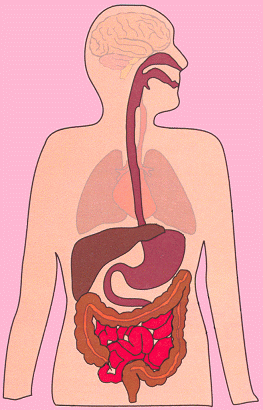Those of you who are familiar with The Gabriel Method will be aware that one of the things we’re always talking about is hormones. Your body’s hormonal environment is crucial to how your body uses the food you eat.
It’s the hormonal influence on fat storage that makes all the difference. If more people understood the role of hormones in fat, we’d finally be able to kill the myth that losing weight is a “simple” matter of calories in vs. calories out.
 The body just doesn’t work like a bank account where if you put in fewer calorie “dollars” and spend more calorie “dollars” you’ll end up with less in your “fat account.” If it were that simple, then diets, especially calorie restriction diets, would work, and as we say again and again they just don’t.
The body just doesn’t work like a bank account where if you put in fewer calorie “dollars” and spend more calorie “dollars” you’ll end up with less in your “fat account.” If it were that simple, then diets, especially calorie restriction diets, would work, and as we say again and again they just don’t.
When you eat, your body has a choice. “What will I do with these calories? Will I use them up by making myself more alert and mentally and physically active, or will I store them for a rainy day in the form of fat?”
Your hormonal environment will dictate whether your body stores fat.
So while we’re talking hormones, let’s talk insulin. Insulin is a major fat storage hormone. If your insulin levels are chronically elevated, then that’s a pretty good sign that your F.A.T. programs are on.
Chronically elevated insulin levels will ensure that your body will store the food you eat as fat, AND also keep you chronically hungry for junk food. It’s a vicious cycle!
Fortunately, there is a way of taking control that’s relatively easy.
It’s all about timing…
According to The International Journal of Obesity, a recent study in Spain shows 400 different adults trying to lose weight. They’re all doing basically the same thing— eating about the same and exercising about the same. The only difference is that half of them ate their main meal before three o’clock; the other group after. The group eating before three o'clock lost 25 percent more weight than the the other group.
Why this makes perfect sense
It’s about the insulin levels in your body when you go to sleep. Insulin is (as we said) the fat-making hormone, and it has to be lowered long enough before your body can start to burn fat. This makes sleeping the perfect time to do this–that is if you haven't eaten too much before you go to sleep.
If you eat too much before you go to sleep, your insulin levels elevate, your digestion slows down, and your body goes into fat-storage mode. In other words, you’re gaining weight while you sleep.

Luckily, the reverse is also true. If, your insulin levels are low enough when you go to bed, you’re going to burn fat—while you sleep!
You can actually eat the same amounts, but simply by eating it earlier you’re going to be losing instead of gaining weight. It’s not about the calories in, and the calories out. It's about the effect of the hormones on the foods you’re digesting and the timing of when you eat.
Co-operate with your body so it can cooperate with you!
Once you understand the biochemistry of the situation, it’s a simple matter of shifting your hunger habits.
The best strategy is to eat more during the early part of the day, progressively eating less until you’re eating relatively little at night. Make sure you eat lots of nourishing foods, like big salads with fermented foods, healthy fats and quality proteins. Things we talk about in The Gabriel Method all the time as “The Big 3.”
This means eating your bigger meals in the late mornings and early afternoons and a lighter, earlier dinner.
It’s not about calories, you can eat the same number of calories, just eat them earlier. What will happen is your insulin levels get low enough during the night that you will end up burning fat all night as opposed to making fat all night. That’s because you’ve changed the hormonal environment of your body before you sleep to one that favors weight loss.
If you eat mostly at night, especially starchy, sugary foods, you’ll be elevating your insulin levels and then your body goes into fat making mode all night. In a lot of ways it’s as much about timing as anything.

By shifting your eating patterns to eating earlier, you’ll soon find that you’re hungrier in the morning and less so at night and this one change can make all the difference in the world.
This simple, but powerful change of lifestyle can help you burn fat instead of make fat while you sleep.
Have you experimented with eating at different times of the day? How did you feel?
We'd love to hear your thoughts and stories – so share with us by commenting below!
If you want to know which hormones are keeping you in fat-making mode check out our F.A.T. Trigger Quiz and discover exactly what you need to start switching your body into fat-burning mode.



